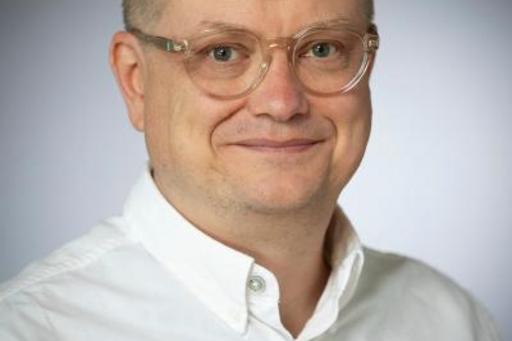Seminars and workshops
Seminars and workshops within the Centre for Health Governance research area will be announced here.
Passed seminars
November 27, 2024
Tomas Bokström, Shirin Bartholdsson, Mikael Cäker.
“Socioeconomic inequality within the health care system”
The seminar was held in Swedish. For more info see Swedish page.
3rd October, 2024
Title: The role of providers’ intrinsic motivation for quality of care and responses to a non-financial incentive
Presenters: Anne Sophie Oxholm, Danish Centre for Health Economics, University of Southern Denmark
Anne Sophie is an associate professor at Danish Centre for Health Economics at the University of Southern Denmark focusing on behavior on health care markets, and in particular on financial incentive schemes targeted to health care professionals, health care professionals’ motivational profiles, and inequality in patients’ access to care. The work that she will present is a part of collaboration and co-authored with both fellow economists and general practitioners. We are therefore also hoping for a mixed crowd. The plan is also to (as usual) continue the discussions in a more informal way after the seminar. We are hoping to see many of you there.
Abstract: Providers’ intrinsic motivation is deemed important for quality of care and responses to incentives. Building on self-determination theory, we test the hypotheses that more intrinsically motivated providers perform better and respond less to a non-financial incentive. We exploit the introduction of a cluster randomised accreditation scheme in Danish general practice, where practices were randomised to accreditation in different years. Using data from a nationwide survey and administrative registers, we compare accredited practices’ performances with not yet accredited practices, while taking intrinsic motivation into account. We find a positive relationship between practices’ intrinsic motivation and performance on some quality measures. We also find that intrinsic motivation moderates the response to accreditation. While the least intrinsically motivated practices respond to accreditation by increasing their performances, the most intrinsically motivated practices do not respond to the incentive. These findings point to the importance of taking providers’ intrinsic motivation into account when designing incentives.
23rd May 2024
Prof. Jahangir Khan, Prof. Sharon Fonn, Ass. Prof. Swapnarag Swain
"Universal Health Coverage – Challenges and Opportunities in Bangladesh, India, and South Africa"
Universal health coverage (UHC) is a vision where all people and communities have access to quality health services where and when they need them, without suffering financial hardship. UHC is included in Sustainable Development Goals (target 3.8), declared by the United Nations in 2015. Since then, countries are at different stages of progression towards UHC and facing different challenges but also opportunities. In this seminar, we present experiences on UHC from three low- and middle-income countries: Bangladesh, India and South Africa. The presentations cover their UHC status, current health policy discussions, and challenges and opportunities for UHC.
March 21, 2024
“Should "willingness-to-pay" thresholds change with disease severity?”
A seminar on population preferences and equity considerations of disease severity in economic evaluations in Sweden, with economist Erik Grönqvist from Uppsala University.

Abstract:
The standard cost-effectiveness framework for healthcare products relies primarily evaluating on health gains from treatment compared to its cost. However, there is an intuitive feeling that the value of treating patients who are more severely sick is higher than that for treating patients who are healthier. This is possibly driven by a preference for equity among the population. In the presence of a public health system operating with limited resources, it would be useful to understand public perceptions about the nature of this trade-off. We study the Swedish general population’s preferences in the trade-off between the health gain from a treatment and the disease severity of the target patient when conducting healthcare prioritization. We employ a discrete choice experiment to measure the population’s opinions on this trade-off. We then try to establish measures for the value of each unit of health gain for patients in different states of disease severity.
No registration needed. Welcome!
February 8, 2024
John Lapidus, economic historian and Jens Wikström, economist.

"Private healthcare insurance in a public healthcare system"
In this seminar, John and Jens will talk about their fascinating research on the development of private health insurance in Sweden.
John Lapidus is an economic historian, and will introduce and discuss the development of private health insurances based on his research and recent books on the privatization of the Swedish welfare state.
Jens Wikström is an economist and will present his ongoing research answering questions such as: who is it that buys private health insurance in Sweden, and how do individuals’ health care utilization change when signing such an insurance? These results is based on novel data that Jens has collected joint with his colleagues.
During the seminar, John and Jens provided a lot of food for thought about this under-researched, yet extremely timely and policy-relevant topic.
November 2, 2023
Hanna Gyllensten, Associate Professor, Benjamin P Harvey, PhD student and Salma Pardhan, PhD Student.
"Health economic aspects of person-centred care"
The lecture summarized the current knowledge on the cost-effectiveness of person-centred care, using results from both a systematic review and our own economic evaluations of clinical trials. They also provided an overview of important methodological aspects in such evaluations with a particular focus on outcomes assessment using findings from a recently developed core outcome set for healthcare programmes that focus on shared decision-making and participation, such as person-centred care.
September 7, 2023
Ashish Kc, School of Public Health and Community Medicine, SA
"Power and Policy"
April 19, 2023
Martin Karlsson, Professor of Economics at the University of Duisburg-Essen, Chair of Health Economics at CINCH (Competent in Competition and Health) research centre, and a Research Fellow at IZA. Martin is also an affiliated professor at the Dept of Economics.
The title of his talk was “Premium refunds and healthcare use” and is joint work with Daniel Avdic, Simon Decker, and Martin Salm.

March 16, 2023
Kristina Jakobsson and Felipe Pacheco Zenteno
Sahlgrenska academy, lecture hall Mammuten, Medicinaregatan 18A.
January 19, 2023
Ingrid Svensson presenter
School of Business, Economics and Law, lecture hall B44, House B, floor 4, Vasagatan 1
May 25, 2023
A workshop was also held May 25, 2023 at School of Business, Economics and The workshop consisted of 6 presentations of ongoing research spanning on different questions related to the organization of health care.
Program
13.30: Randi Hjalmarsson (University of Gothenburg) “ADHD, Prison Healthcare, and Crime”
14.00: Niklas Jakobsson (Karlstad University) ”When do Default Nudges Work”
14.30: Henning Øien (Oslo University) “Out-of-pocket prices and rationing of care services:
Evidence from price discontinuities”
15.00: Coffee
15.20: Annika Lindskog (University of Gothenburg) “Historical pathogen prevalence and government response to COVID-19”
15.50: Jens Wikström (Stockholm University) “Does it matter who cares? Formal vs. informal care of the elderly”
16.20: Mio Fredriksson (Uppsala University) ”The development of universal health coverage and equal access in Sweden: A century-long perspective”
16.50: Conclusions
August 17-19, 2022
Nordic Health Economists' Study Group
The University of Gothenburg and the Centre for Health Governance at the University of Gothenburg (CHG) hosted the 41st Nordic Health Economists’ Study Group (NHESG) meeting on the 17th-19th of August 2022. The conference was held in person at Wallenberg Conference Center in Gothenburg. The meeting aimed to bring together researchers who are working in the area of health economics and to promote continuous development of health economics as a sub-discipline of economics.